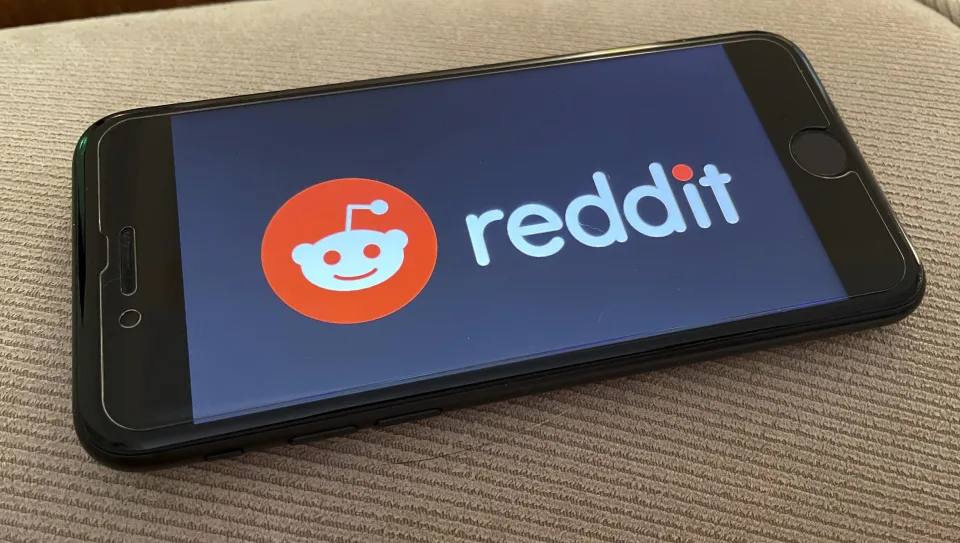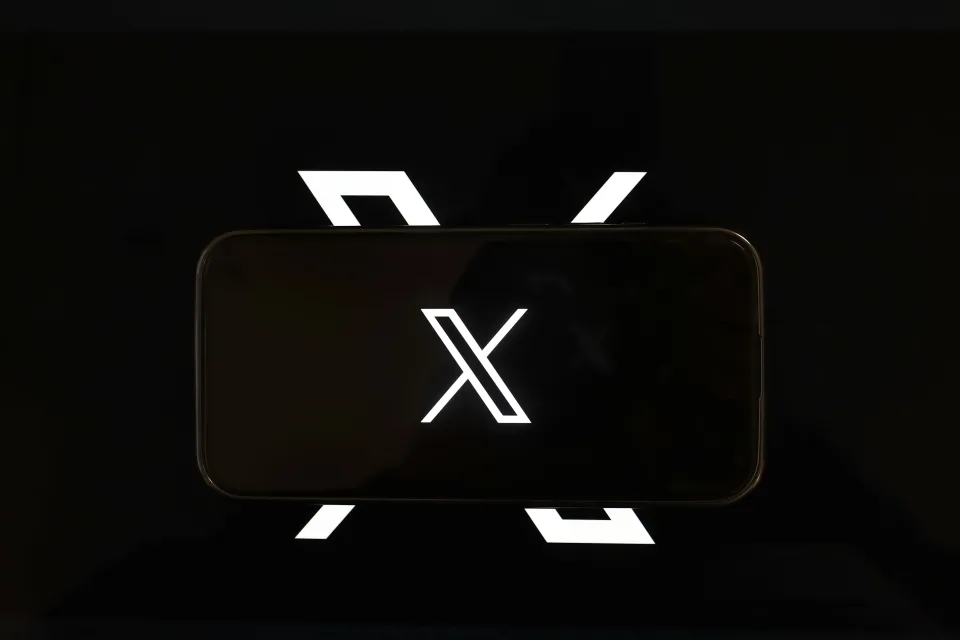The past few years have been undeniably challenging, and 2023 continued to deliver distressing news. Against the backdrop of the ongoing humanitarian crisis in the Palestine-Israeli conflict and escalating concerns about the credibility and reliability of AI, coupled with Elon Musk’s controversial actions, major setbacks affected prominent players in the tech industry. Notably, the E3 gaming convention met its demise, popular online forums experienced a decline, and both cryptocurrencies and Silicon Valley banks and financial institutions faced challenges. Additionally, the unfortunate situation for residents near the Twitter office in San Francisco, enduring obnoxious and potentially epilepsy-triggering lights from the building, added to the list of unfavorable developments. While some of these issues can be met with a sense of relief, others evoke sadness and condolences for the hardships endured in the course of this year.
The X, Twitter and Elon Musk fiasco
Certainly, any “Losers in 2023” compilation would be remiss without acknowledging the tumultuous state of Elon Musk’s venture into Twitter, or X as it’s referred to. In the aftermath of Musk’s acquisition of Twitter last year, predictions were made about how this move would unfold. There was recognition of the high-risk, high-reward nature of Musk’s involvement, drawing on his previous successes with Tesla and SpaceX.
However, the actual trajectory took an unexpected turn, with Twitter transforming into a platform marked by chaos and controversy. In hindsight, what wasn’t fully anticipated was Musk’s apparent disregard for running X as a conventional business. Instead, it seemed more like an expensive toy used to draw attention to what he perceived as the faults of social media. Combining Musk’s increasingly unpredictable behavior with shortsighted decisions resulted in an organization in a state of turmoil.
While not all these events occurred in 2023, there were several noteworthy missteps and controversies in the last 18 months that contributed to the perception of Musk’s Twitter venture being fraught with challenges. The narrative surrounding Musk and X has been marked by decisions that some might describe as among the “dumbest” in recent times.
Over a year ago, Musk caused a significant disruption to Twitter’s verification system, resulting in fake accounts with seemingly authentic handles engaging in activities like posting images of Mario flipping the bird or the Pope spreading conspiracy theories. In June of the same year, Musk’s decision to block non-logged-in users from viewing tweets led to consequences such as Google and others removing Twitter content from search results. Recognizing the impact on ad revenue due to decreased traffic, Musk reversed this decision a week later.
Arguably, Musk’s most notable misstep occurred in July when he decided to change Twitter’s name to X. This rebranding move was widely deemed as impractical and largely ignored by the public. The name change was accompanied by a sign installation on the company’s San Francisco headquarters, which, lacking proper permits, caused disruptions to neighbors and was dismantled after barely a weekend. More recently, major companies, including Apple and Disney, withdrew their ads from X, citing a rise in hate speech. Musk’s response to Disney CEO Bob Iger, telling him to “Go fuck yourself,” was viewed as another questionable business move.
Given the events of 2023, it seems that X, the company formerly known as Twitter, has not reached its lowest point. The series of decisions and controversies have left many wondering about the future trajectory of Musk’s involvement with the platform. — Sam Rutherford, Senior reporter

Microsoft’s Surface tablet
This year appears to be a low point for Microsoft’s iconic Surface tablets, with the Surface Pro 9 notably lacking any upgrades since the previous version. It still runs on an older 12th-gen Intel chip, with the only notable addition being a 5G-equipped model featuring a custom ARM-based Microsoft SQ3 chip. However, caution is advised regarding the latter model.
Beyond the Surface Laptop Studio 2, Microsoft introduced the Surface Laptop Go 3 for consumers, while the Surface Go 4 tablet is now primarily aimed at business users, not even featuring prominently on the main Surface site. This shift suggests a potential pivot in Microsoft’s tablet/laptop hybrid vision, or at least a temporary pause, as the company prioritizes integrating its AI Copilot into various products.
While the Surface business has generated some revenue for Microsoft, it pales in comparison to the earnings from Azure cloud services. The Surface devices have served as a testament to Microsoft’s ability to produce high-end Windows hardware that occasionally propels the PC industry forward, even if the focus seems to be shifting away from the original tablet/laptop hybrid vision.
It’s been 11 years since Microsoft introduced its first Surface devices, and over this time, it has become evident that many consumers haven’t been inclined to replace their laptops with tablets. The trend has shifted towards simpler 2-in-1 convertible devices like HP’s Spectre x360 16, which are less common nowadays and often work best in their notebook modes. Compounding the challenge is the fact that Windows 11 is still not particularly tablet-friendly. For those seeking productivity on a slate, opting for an iPad with a keyboard case often makes more practical sense.
With Panos Panay, the visionary behind Microsoft’s Surface line, now at Amazon, there appears to be dwindling hope for Microsoft’s tablet concept. The fate of the Surface Neo, a foldable device, remains uncertain, and Microsoft’s past attempts, such as the Surface Duo, have faced challenges. While the future of Microsoft’s tablet endeavors remains unclear, there’s always the possibility that innovations like the Surface Neo might make a return as true foldable devices. However, for now, it remains a dream for Windows users. — Devindra Hardawar, Senior reporter

Amazon’s Halo hardware products
In July of this year, Amazon dealt a blow to dreams by discontinuing support for its Halo line of health-related hardware products. The Halo division had been marred by controversy since the launch of the screenless Halo wearable in 2020, which served as a basic activity tracker but garnered attention for its opt-in feature. This feature used onboard microphones to analyze the wearer’s voice, determining if they sounded stressed, upbeat, or emotional.
The inclusion of this voice-analysis feature sparked controversy, with concerns raised about Amazon potentially monitoring and influencing users’ speech. Critics, including many reviewers, were also skeptical about the usefulness of the Tone feature. While it flagged instances when wearers sounded happy or sad, the data provided was deemed insufficient to be genuinely informative. The discontinuation of support for the Halo products marked the end of a venture that faced challenges related to privacy and the efficacy of its unique features.
The Halo app included a feature that allowed users to perform a body composition scan using their phone’s camera. To utilize this feature, users had to input their height and weight, then strip down to their underwear and pose for four pictures (front, back, and sides). The app would then provide information on the percentage of body fat and muscle.
Despite Amazon’s claim that the “Halo body fat measurement is as accurate as methods a doctor would use—and nearly twice as accurate as leading at-home smart scales,” the reliability of this feature was called into question. The author personally used the Body feature every few months over two years, comparing it to the bio-electrical impedance analysis (BIA) sensor on Samsung’s Galaxy Watch and more sophisticated BIA scans from a gym. The scans from Amazon’s Halo app were found to be significantly inaccurate, while the Samsung watch results were closer to the data obtained from the gym’s machine. This discrepancy raised doubts about the effectiveness and precision of Amazon’s body composition scan feature.

The performance of Amazon’s Halo products has been generally lackluster, but there seemed to be a positive shift with the introduction of the Halo Rise bedside sleep tracker this year. The device was commended for accurately detecting when the user fell asleep, and calculating different sleep stages (REM, Deep, Light, etc.), all without the need to wear something to bed or install a new mattress. This provided a feasible way to track sleep and make informed decisions about daily workouts, activities, and stress levels.
However, this positive development was short-lived, as Amazon decided to discontinue its Halo business this year. Despite the company’s efforts in acquiring healthcare firms and signaling a deeper involvement in the pharmaceutical sector, it opted to exit the Halo venture. While it may be disappointing for users who found value in the Halo Rise, the discontinuation aligns with the broader picture of Amazon’s strategic priorities. The decision raises questions about the future role of tech giants like Amazon in managing personal health data, especially as they expand into healthcare services. — Cherlynn Low, Deputy editor
E3
The author reminisces about their long-standing involvement in the world of games, starting in the late ’90s at the age of 13 when they began writing, albeit poorly, for a popular game site. Their early writing focused on release dates, special editions, and other details. Despite losing interest in writing a few years later, they remained active in IRC channels, engaging in discussions about games with like-minded individuals.
The author reflects on their obsession with major gaming events like E3 and the Tokyo Game Show, where they would discuss the happenings with a diverse group of fans and industry professionals. In 2000, the anticipation surrounding Metal Gear Solid 2’s debut at E3 was intense. The firsthand reports from the show were overwhelmingly positive, and when the trailer became available for download weeks later, it was eagerly spread across the internet. The author vividly recalls the mix of frustration and excitement as they downloaded the trailer at a slow speed, savoring the first glimpse of what was deemed “next-gen” gaming at the time.
The author reflects on Metal Gear Solid 2 (MGS2) being a pinnacle moment for them during E3. However, in hindsight, this also marks the beginning of E3’s decline. The author questions the necessity of reading a detailed breakdown of a trailer when they could simply download and watch it themselves. This shift prompts the consideration of why companies should invest significant resources in elaborate booths at E3 when they can directly release trailers to their audience.
The landscape changed over the years, with the author, once one of the few people deeply immersed in online gaming communities, witnessing a transformation. By the 2010s, with the rise of online platforms and Nintendo E3 Directs becoming prevalent, the traditional role of press and the nature of the E3 show had evolved. Major presentations from companies like Sony, Microsoft, Bethesda, Ubisoft, and EA were broadcast live to fans. The author, who later attended E3 themselves, noted that playing games and interviewing developers had become activities spread throughout the year rather than being exclusive to E3. The author hints at a broader shift in how information is disseminated and how gaming events are experienced in the digital age.
The author recounts their diminishing excitement for E3 over the years, with the PS4 and Xbox One reveals being the highlights during their in-person attendance. By 2019, the joy of the event had waned, and the cancellation of the 2020 event due to the pandemic seemed to signal its irreversible decline. The author expresses the sentiment that the industry had outgrown E3 long before its cancellation.
Despite the demise of E3, the author expresses hope in the potential success of Summer Game Fest, which may not reach the same scale as E3 but could become a strong brand to carry on the tradition of a week dedicated to gaming announcements. The prospect of having gaming events spread throughout the year is seen as a potential threat to the unique excitement and magic associated with E3, which the author hopes can be preserved in some form. — Aaron Souppouris, Executive Editor
Cryptocurrencies and finance in tech
The author reflects on the inherent loopholes in mathematics and the potential consequences of substituting math for truth, especially in the context of the cryptocurrency landscape. They note the irony in crypto’s assertion of being a system based on cryptographic proof instead of trust, while high-profile figures in the crypto world find themselves facing legal troubles.
The year 2023 is highlighted for the legal challenges faced by prominent figures and entities in the crypto space. Coinbase faced accusations of leaving gaps in its systems, potentially enabling fraud, money laundering, and drug dealing. Alex Mashinsky, former CEO of Celsius, was sued and later arrested, along with the company’s chief revenue officer, Roni Cohen-Pavon. Additionally, Terraform Labs faced SEC charges for securities fraud, resulting in the loss of approximately $45 billion. The author emphasizes that these incidents occurred within the first few months of the year, highlighting the legal scrutiny and challenges faced by the crypto industry.
Binance, the world’s largest cryptocurrency exchange, was a prominent figure in the headlines of 2023, echoing the dominance FTX had in the previous year. Regulatory accusations targeted Binance and its founder Changpeng “CZ” Zhao, accusing them of intentionally undermining controls and processes to enable users to potentially break the law. Zhao pleaded guilty, stepped down as CEO, and paid a substantial fine, allowing the company to continue its operations. The Winklevoss Twins and their exchange, along with partners, faced allegations of defrauding investors by approximately $1 billion.
The author notes the irony of Ferrari entering the cryptocurrency market to appeal to the demographic associated with Lamborghinis and trading “tendies” (profits) just as the crypto industry faced challenges.
Michael Lewis, known for his background in economics and experience as a bond trader, is mentioned in the context of missing developments at FTX, where he had a ringside seat with Sam Bankman-Fried. While Lewis has continued to support Bankman-Fried, the latter’s guilt in a fraud case has raised questions about Lewis’s reputation as a credible financial journalist. — Daniel Cooper, Senior reporter

The author shares their experience as a longtime Reddit user who primarily used the first-party app. However, the dynamics changed when Reddit decided to start charging for API access in April. This policy shift affected third-party Reddit clients like Apollo, RIF, BaconReader, and Narwhal, forcing them to reconsider their pricing or face shutdowns. Many of these third-party apps offered superior browsing experiences compared to Reddit’s official app.
The author criticizes Reddit for botching the situation, as the policy change not only impacted feature-rich third-party apps but also affected clients designed for more accessible use. The new API fees rendered some clients unusable unless developers paid substantial fees, potentially reaching tens of thousands of dollars or more.
While Reddit eventually acknowledged that the API fees could exclude users with disabilities and worked with some developers to provide free access, the company faced public backlash and subreddit blackouts. In the latter half of the year, subreddits across the platform either stopped posting, changed settings to private or NSFW, or dedicated themselves to sharing salacious images of Last Week Tonight host John Oliver. The author highlights the challenges and controversies arising from Reddit’s decision and its impact on the diverse ecosystem of third-party Reddit clients.
The author highlights the consequences of Reddit’s decision to charge for API access, which led to protests and subreddit blackouts. Reddit reportedly forcibly took over some communities that went dark and sought volunteers to manage subreddits it deemed to have violated its Moderator Code of Conduct.
According to internet analytics company Similarweb in June, Reddit experienced a 6.6 percent drop in average daily traffic. The author shares personal experiences of using the first-party app on iOS, describing it as a “complete shitshow” with various bugs and annoyances, such as videos auto playing unmuted and other infuriating issues. The mass subreddit blackouts led to the creation of duplicate communities with different moderators, resulting in a noticeable decline in the quality of posts.
Additionally, the removal and attempted reintroduction of trophies in a confusing format, along with the influx of karma-farming bots and repetitive comments, have contributed to a perception that the days of enjoyable Reddit scrolling have come to an end in 2023. — Cherlynn Low




